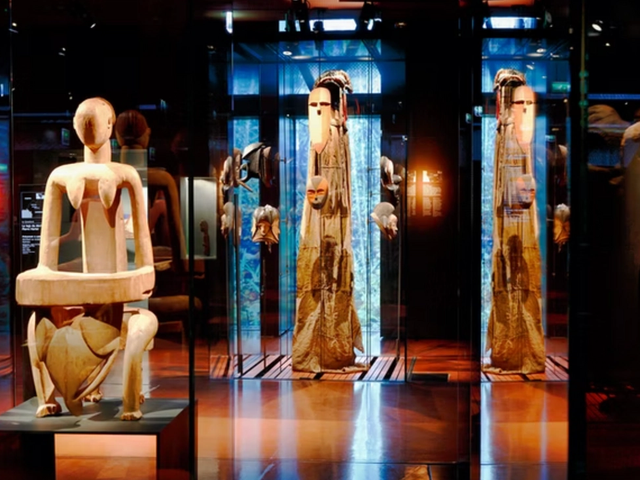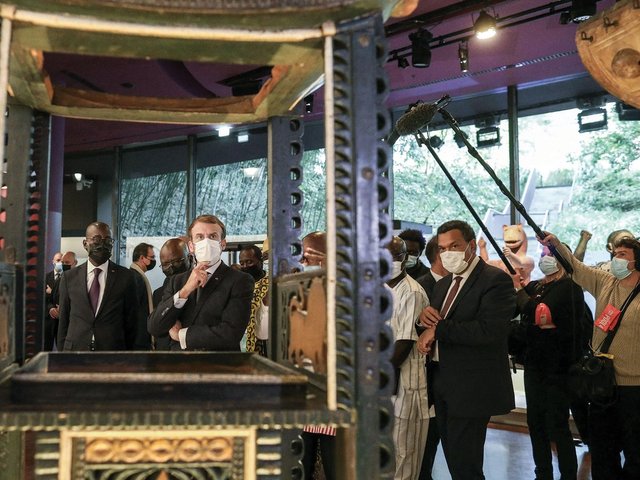The skulls of three leaders—potentially including a king—beheaded by French troops during the colonial conquest of Madagascar have been restituted to the African country. The restitution, which took in a ceremony held in Paris on Tuesday 26 August, is the first to take place under a French law on the return of human remains that was adopted in December 2023.
“These skulls arrived in the national collections under circumstances contradicting human dignity and in the context of colonial violence,” said French culture minister Rachida Dati at the handover ceremony.
“They are not simple objects of collection,” stated her Malagasy counterpart, Volamiranty Donna Mara. “They form a link uniting our present and our past and their absence has been an open wound in the heart of our island for the past 128 years.”
The skulls are understood to have belonged to three leaders within the Sakalava community. They were beheaded in Ambiki in 1897, as troops of France’s General Joseph Gallieni massacred hundreds of locals from the Sakalava community. The massacre took place as King Toera, the ruler of the Madagascar’s Menabe region, and his warriors were in the midst of negotiating their people’s surrender.
The remains were sent to the Natural History Museum in Paris two years later. Reports from French officers at the time suggested that one of the skulls may have belonged to King Toera. A bilateral scientific committee established that they all belonged to leaders from the Sakalava community, but could not ascertain whether one of them indeed belonged to the king.
The skulls will now travel around the island before being buried according to custom in Bora, in the north of the country, on 30 August. During an official visit to the island last April, the French president Emmanuel Macron promised their restitution with a hope to “offer the conditions of forgiveness on the bloody pages of colonialisation”. Their return was scheduled to take place during his visit, but had to be postponed because ceremonies in April are forbidden by local customs.
Following the introduction of the law new law on human remains and another on the restitution of art looted by the Nazis, the French government has introduced a bill to facilitate the repatriation of objects taken under duress during the colonial period. A discussion of the bill that was expected to take place the senate in the autumn has been postponed, however, because the government is expected to be submitted to vote of confidence on 8 September.






